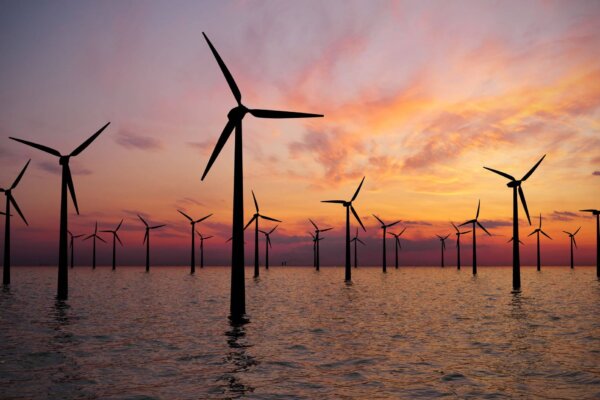We may only be a few weeks into the new year, but with so many energy policies expected to be announced before COP26 in November, there’s still plenty to update you on. From the transition to a far more climate-conscious President in the US, to new policies in the UK that will inform your energy strategy for the year ahead, it’s important to ensure your business is prepared.
These are the key changes you need to know about:
US TO REJOIN THE PARIS AGREEMENT
New US President Joe Biden signed an order to return the US to the Paris Agreement within hours of his inauguration, during which he spoke about the need for America to respond to a ‘climate in crisis’.
The Paris Agreement is a legally binding international treaty on climate change, and countries that sign up to it agree to address their carbon emissions and work towards carbon neutrality in order to limit the global temperature increase to 1.5°C above the pre-industrial era. As America is the world’s second largest emitter of greenhouse gases, their participation in the Paris Agreement should make a significant difference to global greenhouse gas emissions.
Pre-election, President Biden also committed to setting a net zero target for the US – and if he fulfils this commitment, over 60% of global CO2 emissions will be under net zero targets. In his first phone call with Boris Johnson, it’s reported that the two leaders agreed to deepen ties between the UK and the US and work together to drive a green and sustainable recovery from Covid-19. To find out more about the US’s re-entry to the Paris agreement, click here.
ENERGY WHITE PAPER PUBLISHED
The long-awaited Energy White Paper was published on 14th December 2020, giving businesses much-needed insight into the Government’s plan for reaching net zero by 2050.
Energy efficiency schemes were a key focus within the report, which outlined plans to consult on strengthening the Energy Savings Opportunity Scheme (ESOS) and establishing a new energy efficiency scheme for small businesses in early 2021. Many businesses can therefore expect their energy reporting obligations to increase. The report also committed to supporting industries with the costs of improving energy efficiency, through measures such as exemptions from some non-commodity costs and more funding to support investment in emerging technologies.
Modelling included in the also indicates that wind and solar generation could more than quadruple by 2050. The Government has created a range of scenarios for reaching net zero by 2050, and all of their low-cost solutions included significant levels of renewables. However, the report mentions that the transition to these technologies will need to be supported by other low carbon technologies, such as nuclear power and clean hydrogen.
To read the full Energy White Paper, click here.
NEW ENERGY MINISTER REVEALS POLICY PRIORITIES
The UK’s new Minister for Business, Energy and Clean Growth, Anne-Marie Trevelyan, has revealed her key policy priorities, giving businesses a hint as to what could come over the next two years. Trevelyan stepped into the role in November, when her predecessor Kwasi Kwarteng was appointed Secretary of State for Business, Energy and Industrial Strategy, following Alok Sharma’s appointment as President of the UN COP26.
At the top of her list is introducing new legislation around offshore wind and other renewable technologies, specifically regulations that will enable competitive bidding in the building, ownership and operation of the UK’s onshore electricity network. She also confirmed that she will publish the Heat and Buildings Strategy, which will set out plans for the decarbonisation of heat across the UK, within the next few months.
The Minister also committed to working with Ofgem to ensure that energy customers are paying fair prices for their energy and aren’t penalised for staying with their supplier. Depending on the outcome of the Government’s consultation around opt-in or opt-out switching, a new scheme could be introduced to automatically switch customers to a new tariff when their current tariff ends, to help more customers avoid costly standard or default tariffs.
To find out more about the Energy Minister’s policy priorities, click here.
SIXTH CARBON BUDGET SETS OUT ROUTE TO NET ZERO
The Climate Change Committee (CCC), the independent, statutory body that was established to advise the UK Government on emissions targets and report on progress, published its Sixth Carbon Budget in December 2020.
Within the Budget, the CCC sets out goals the UK must reach in order to hit its net zero target in 2050. In the latest Budget, they have set a target for the UK to cut its emissions by 78% by 2035 compared to 1990 levels, a significantly shorter timeline than they set in the last carbon budget, when they called for an 80% emissions reduction by 2050. They outlined that in order to achieve these targets, the UK must increase the adoption of low carbon solutions, increase electricity generation by 50%, reduce carbon-intensive activities through energy efficiency, and transform agricultural processes.
To read the Sixth Carbon Budget in full, click here.
EU ETS REPLACED WITH UK EMISSIONS TRADING SCHEME
Now that the UK has left the EU, it has also left the EU Emissions Trading Scheme (EU ETS). This is the EU carbon market that requires eligible businesses to cap the amount of emissions they produce and enables them to trade emission allowances with other eligible businesses if necessary. Since 1st January 2021, the EU ETS has been replaced by the UK Emissions Trading System (UK ETS) for all eligible UK businesses.
On an administrative level, this new scheme will operate in a very similar way to the EU ETS. However, the allowed emissions cap has been set 5% lower than the current EU ETS cap, and the Government is set to consult on how they can gradually reduce the cap in order to meet the UK’s net zero target. The UK ETS will apply to energy intensive industries, the power generation sector, and aviation.
To find out more about the UK ETS and how it might affect your business, read the full Government guidance here.
OFGEM CALLS FOR INDEPENDENT BODY TO RUN THE ELECTRICITY SYSTEM
Ofgem has called for the government to establish a new Independent System Operator (ISO) to run the UK’s electricity system and lead the transition to a ‘low-cost, low-emission grid’. National Grid is currently undertaking this role, and will continue to own the networks, but Ofgem believes that an independent body would be better placed to run the electricity system in order to deliver net zero at the lowest cost to customers.
Electricity demand will increase as we transition to a number of low carbon solutions, such as electric vehicles and heating, as part of the pathway to net zero. So it’s vital that the electricity system is run effectively and efficiently. Ofgem states that an ISO would be able to take a more active role in planning and designing a new grid infrastructure than National Grid could, and this could save customers at least £400 million between 2022 and 2050.
To find out more about why Ofgem believes the UK needs an ISO, click here.
UK TO DEVELOP WORLD’S FIRST NET ZERO INDUSTRIAL CLUSTER
The Government will provide £8m in funding to six projects across the UK as they strive to create the ‘world’s first’ net zero industrial zone by 2040.
The six clusters are based in South Wales, the West Midlands, Tees Valley, the North West, Humber region and Scotland. These industrial areas will each be given a share of the £8m funding by UK Research and Innovation (UKRI) to develop detailed decarbonisation roadmaps, including how to use low carbon technologies and renewable energy sources to reduce their emissions to as close to zero as possible. The Humber Industrial Cluster Plan, for example, will explore how the region could scale up its hydrogen infrastructure and use carbon capture and storage technology to achieve net zero by 2040.
To find out more about this funding, click here.
TALK TO OUR TEAM
If you have any questions about the changes discussed above or how they might affect your business, our team of experts is on hand to answer them. Simply call us on 0121 726 7575 or email us at solutions@brytenergy.co.uk. If you’d like to receive our policy updates straight into your inbox, you can sign up here.


